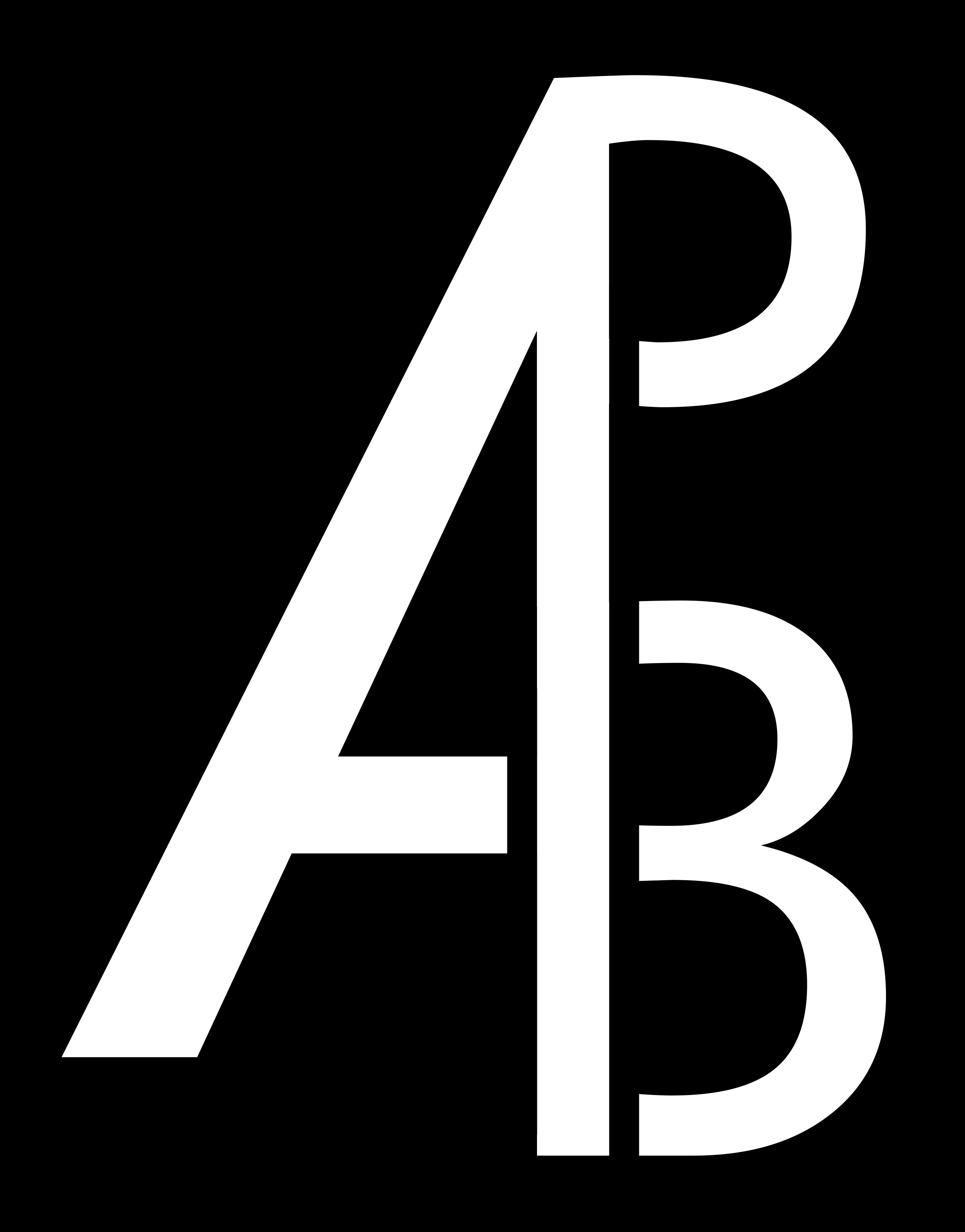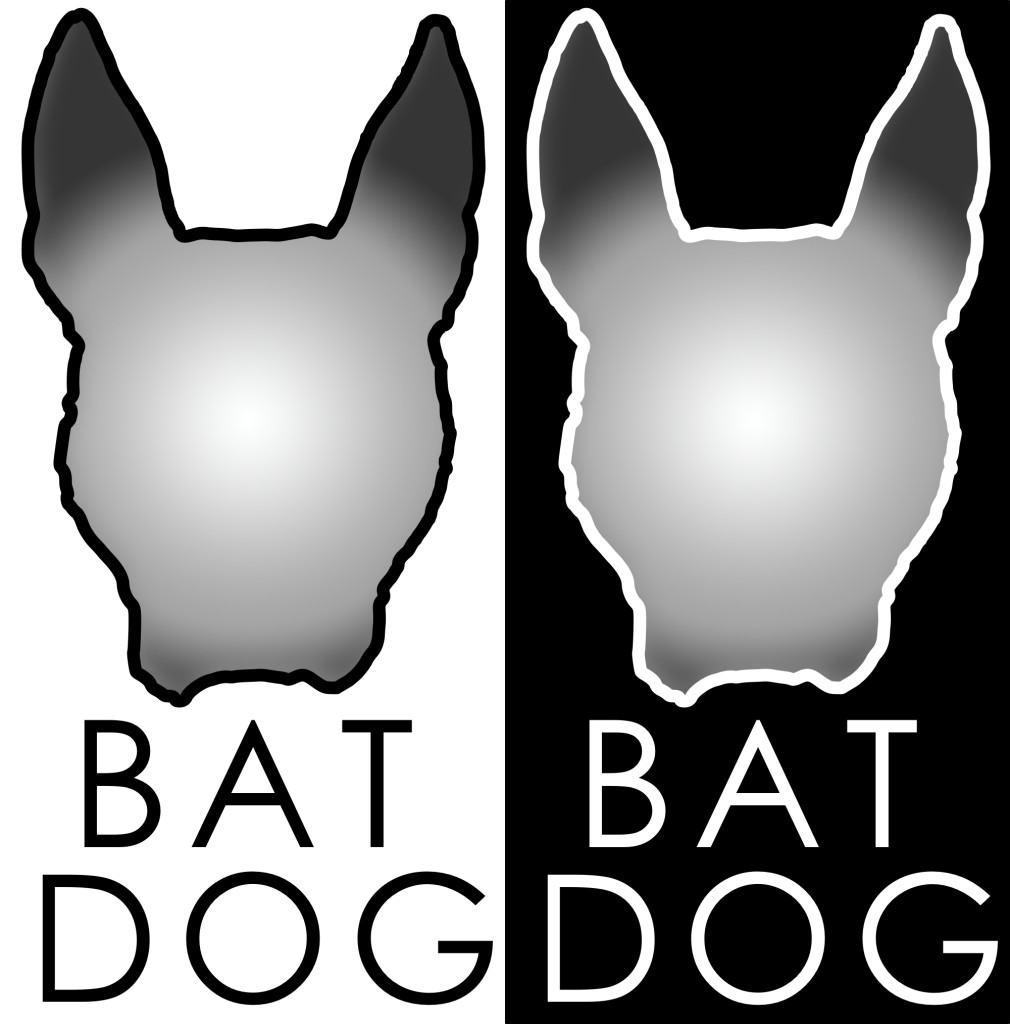Before I start this post, I’d like to introduce you to Batdog Press, the independent publishing imprint I’ve created to publish my own works. It’s got a web domain (www.batdogpress.com), but for the time being and for the immediate future, it just redirects to my own personal website here. More interesting by far is the logo, shown here in light and dark versions:
Like it? I do. It’s based on my dog Atlas. He has massive bat ears, hence Batdog Press.
So if you’re an indie author and you’re sitting there looking at my fancy new logo, you may be wondering to yourself: do I need to create my own imprint to publish my books? Technically, no. But you really should. And I’m here to help you do that.
But first things first – why do you need to create your own publishing company? Well, if you’re an independent author, you might think you’re in the writing business. Wrong. Unless you’re doing work for hire or you’ve already been picked up by a major publisher, you’re not getting paid directly for your writing. You’re also not in the book-selling business. Amazon, Barnes & Nobles, Kobo, and other online retailers are, but chances are you don’t have a storefront where you’re selling books.
If you’re like me, you’re in the publishing business. You create and package a written work, list it for sale through a seller/distributor, and earn money through royalties. If you do this, whether you establish a fancy name for your company or not, you’re in business as a publisher, at least as far as Uncle Sam is concerned. So you might as well be professional about the whole thing.
If you’re a single author acting alone, as most of us are, you have two primary choices when establishing your business. You can treat it as a sole-proprietorship, or you can form a single-member limited liability company (or LLC).
Most authors go the sole-proprietorship route, and some don’t even know they’ve done so. As far as the US government is concerned, as soon as you start listing books online, even if you’re publishing and selling under your own name, you own a sole-proprietor business for that venture, and you’d better keep track of those earning on a Schedule C to be filed with your annual taxes.
So what do you need to do to start a sole proprietorship? Well, nothing really. As soon as you start doing business, you’ve established your sole proprietorship. It’s that easy.
Well, for the most part. Depending on which state you live in, you might have to register your business with the state – usually with the secretary of state – to establish a ‘doing business as’ name. In some states, such as in Tennessee where I live, you can’t. They won’t let you. You should also check to see if you need a business license to operate your publishing company. This could be at the state, county, or city level. Chances are you won’t need one unless you’re actually selling books (remember – you’re not selling books, online retailers are), but be sure to read your state’s business tax code to be sure.
Your other option is to form an LLC. LLC’s are a bit more work. They cost an upfront fee to incorporate, you have to file yearly business reports – for which you have to pay a yearly fee, you need to hire a registered agent to accept legal summons for you, and you may be liable for additional taxes over what you’d have to pay with a sole proprietorship. Sounds like a pain, right?
So why would you want to form an LLC? Well, the corporate framework puts a legal barrier in between your business assets and personal assets. So if someone sues your business, they can’t come after your home or your personal bank accounts. Similarly, if someone sues you for some reason, they can’t come after your business assets.
This might sound really appealing, but there’s relatively few scenarios in which this might help you if you’re a single author publishing your own works under your indie imprint. Also, take note: an LLC only helps protect your assets if you get sued and lose. As my friend Scott Boone over at www.writerinlaw.com points out, you shouldn’t just think about whether a court would rule in your favor over ‘X’, but whether doing ‘X’ would risk you getting sued at all. Legal fees are expensive, yo.
However, if you get to a point where you’re hiring employees or providing services to others, all bets are off. You might want to form the LLC.
Now regardless of whether you run your indie publishing company as a sole proprietorship or as an LLC, there are a few things you should consider:
What will you name the company? It’s perfectly acceptable to operate under your own name for a sole proprietorship, but be aware that when bookstores are looking to fill their shelves with books, they may look down on books that are self-published, ie. with your own name as the publisher. So try to pick a fun name that’s: 1) easy to remember, 2) sounds like a publishing house – so it probably has the words ‘publishing’ or ‘press’ in the title, and 3) isn’t already in use (use Google to check).
This leads to another important point. Get a web domain for your company. Even if you have no immediate plans to start a webpage for your business. Just buy it. They’re cheap – like $15 a year tops. Domain availability will probably impact your choice for company name, too, because you want to have your domain address be www.yourcompanyname.com. The .com is important. Make sure you get a .com address.
Finally, establish a bank account for your company. It should be fairly easy, just ask your local bank. And if you go the sole proprietor route, you may be able to take advantage of free checking accounts that are normally only available to individuals rather than businesses. Then be sure to use that account for all your business purchases and have your earnings deposited into that account as well. The IRS will appreciate it when you start deducting expenses on your taxes later.
Lastly, think about creating a logo for your company. This is something that you’ll display on your website (if and when you put that up) and also affix to the spine of books you sell in print. Ideally, you want the logo to be simple, easily recognizable, and contain very few letters. You can see what I did for Batdog Press. If in doubt, just shrink your logo to about the size it would be on a trade paperback spine and see how it looks. If it’s a jumbled mess, make it simpler.
And that’s about it. With these tips, you should have everything you need to establish your own indie publishing business. Just be sure to look over your local state’s tax code (fun reading, I know) to make sure you’re following the tax laws, and you’ll be good to go.


